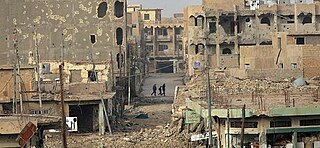Related Research Articles

Al-Qaeda, officially known as Qaedat al-Jihad, is a multinational militant Sunni Islamic extremist network composed of Salafist jihadists. Its members are mostly composed of Arabs, but may also include other peoples. Al-Qaeda has mounted attacks on civilian and military targets in various countries, including the 1998 United States embassy bombings, the September 11 attacks, and the 2002 Bali bombings; it has been designated as a terrorist group by the United Nations Security Council, the North Atlantic Treaty Organization (NATO), the European Union, India, and various other countries.

Richard Colvin Reid, also known as the "Shoe Bomber", is a British terrorist who attempted to detonate a shoe bomb on a transatlantic flight in 2001. Born to a father who was a career criminal, Reid converted to Islam as a young man in prison after years as a petty criminal. Later he became radicalized and went to Pakistan and Afghanistan, where he trained and became a member of al-Qaeda.

The Sneetches and Other Stories is a collection of stories by American children's author Dr. Seuss, published in 1961. It is composed of four separate stories with themes of tolerance, diversity, and compromise: "The Sneetches", "The Zax", "Too Many Daves", and "What Was I Scared Of?". Based on an online poll, the National Education Association listed the book as one of its "Teachers' Top 100 Books for Children." In 2012 it was ranked number 63 among the Top 100 Picture Books in a survey published by School Library Journal – the fifth of five Dr. Seuss books on the list.

In Christianity, a martyr is a person considered to have died because of their testimony for Jesus or faith in Jesus. In years of the early church, stories depict this often occurring through death by sawing, stoning, crucifixion, burning at the stake or other forms of torture and capital punishment. The word martyr comes from the Koine word μάρτυς, mártys, which means "witness" or "testimony".
Saajid Muhammad Badat is a British terrorist who was sentenced to a 13-year prison term for planning to blow up an aircraft with a bomb hidden in his shoe.

The Iraqi Civil War was a civil war fought mainly between the Iraqi government along with American-led coalition forces and various sectarian armed groups, mainly Al Qaeda in Iraq and the Mahdi Army, from 2006 to 2008. In February 2006, sectarian tensions in Iraq escalated into a full-scale civil war after the bombing of the Al-Askari Shrine by the Sunni organization Al-Qaeda in Iraq. This set off a wave of reprisals by Shia militants on Sunni civilians, followed by Sunni counterattacks on Shia civilians.
Rafida is a term that broadly refers to Shīʿi Muslims who reject (rafḍ) the caliphates of the first two Rashidun, namely Abū Bakr and ʿUmar. Many Sunni scholars, however, have stated that the term Rāfiḍah cannot be applied to the Shīʿites in general but only to the extremists among them who believe in the divine right of ʿAlī to succeed Muḥammad and who condemn Abū Bakr and ʿUmar as unlawful rulers of the Muslim community.

William C. Chittick is an American philosopher, writer, translator and interpreter of classical Islamic philosophical and mystical texts. He is best known for his work on Rumi and Ibn 'Arabi, and has written extensively on the school of Ibn 'Arabi, Islamic philosophy, and Islamic cosmology.

Dr. Mahmoud Dawud al-Mashhadani is an Iraqi politician and a former Speaker of the Iraqi Council of Representatives. He was elected to the Council of Representatives as part of the Sunni Arab-led Iraqi Accord Front list.

A mazār, or darīh (ضَرِيْح) in the Maghreb, is a mausoleum or shrine in some places of the world, typically that of a saint or notable religious leader. Medieval Arabic texts may also use the words mašhad or maqām to denote the same concept.

Abu Ayyub al-Masri, also known as Abu Hamza al-Muhajir, born Abdel Moneim Ezz El-Din Ali Al-Badawi, was the leader of Al-Qaeda in Iraq during the Iraqi insurgency, following the death of Abu Musab al-Zarqawi in June 2006. He was war minister of the Islamic State of Iraq from 2006–2010 and prime minister of the Islamic State of Iraq from 2009–2010. He was killed during a raid on his safehouse on 18 April 2010.

Nir Rosen is an American journalist and chronicler of the Iraq War, who resides in Lebanon. Rosen writes on current and international affairs. In 2014 he was a special adviser for the Centre for Humanitarian Dialogue, a conflict resolution NGO.

In the Belly of the Green Bird is a 2006 book by Nir Rosen which describes the events in Iraq after the U.S. invasion and the fall of Saddam Hussein. The book builds on nearly three years spent in Iraq observing ordinary life and talking with a wide range of people involved in and affected by the violence. Rosen's thesis is that Iraq is now in a state of civil war and that the U.S. can do little to stop the increasing violence. Rosen was able to take advantage of his fluent Arabic to mix unobtrusively with Iraqis and to dispense with translators in his interviews (Massing).

Abu Musab al-Zarqawi, born Ahmad Fadeel al-Nazal al-Khalayleh, was a Jordanian jihadist who ran a terrorist training camp in Afghanistan. He became known after going to Iraq and being responsible for a series of bombings, beheadings, and attacks during the Iraq War, reportedly "turning an insurgency against US troops" in Iraq "into a Shia–Sunni civil war". He was sometimes known by his supporters as the "Sheikh of the slaughterers".

The origin of Shia–Sunni relations can be traced back to a dispute over the succession to the Islamic prophet Muhammad as a caliph of the Islamic community. After the death of Muhammad in 632, a group of Muslims, who would come to be known as the Sunnis, believed that Muhammad's successor should be Abu Bakr, whereas a second group of Muslims, who would come to be known as the Shias, believed that his successor should have been Ali. This dispute spread across various parts of the Muslim world, which eventually led to the Battle of Jamal and Battle of Siffin. Sectarianism based on this historic dispute intensified greatly after the Battle of Karbala, in which Husayn ibn Ali and some of his close partisans, including members of his household, were killed by the ruling Umayyad Caliph Yazid I, and the outcry for revenge divided the early Islamic community, albeit disproportionately, into two groups, the Sunni and the Shia. This is known today as the Islamic schism.
Raphael Israeli is an Israeli historian and writer. He is a professor emeritus of Middle Eastern, Islamic and Chinese history at the Hebrew University of Jerusalem, as well as a research fellow at Truman Institute for the Advancement of Peace and the Jerusalem Center for Public Affairs in Jerusalem.
Istishhad is the Arabic word for "martyrdom", "death of a martyr", or "heroic death". In recent years the term has been said to "emphasize... heroism in the act of sacrifice" rather than "victimization", and has "developed...into a military and political strategy", often called "martyrdom operations". One who martyrs themselves is given the honorific shaheed.

A suicide attack is any violent attack, usually entailing the attacker detonating an explosive, where the attacker has accepted their own death as a direct result of the attacking method used. Suicide attacks have occurred throughout history, often as part of a military campaign, and more recently as part of terrorist campaigns.
The Fath Medal is a military award of the Iranian armed forces which is awarded by Commander-in-chief, Supreme Leader of Iran. The medal is the likeness of three Palm leaves over Khorramshahr's grand mosque, Flag of Iran and the word "Fath".
References
- ↑ "Shoe-bomber supergrass Saajid Badat testifies in US". BBC News. 23 April 2012.
- Devji, Faisal. Landscapes of the Jihad: Militancy, Morality, Modernity. Cornell University Press. ISBN 0-8014-4437-3
- In the Hearts of Green Birds: The Martyrs of Bosnia. Azzam Publishers
- Rosen, Nir. In the Belly of the Green Bird: The Triumph of the Martyrs in Iraq, New York: Free Press, 2006. ISBN 0-7432-7703-1
- Schwartz, Stephen. "The Arab Betrayal of Balkan Islam." The Middle East Quarterly, Vol. 9, No. 2. (Spring 2002).
- "Stories of the Shuhadaa` of Bosnia: 1992-1995" Review and excerpts
- Xenakis, Nicholas J. "T for Terrorist," The National Interest, Vol. 84 (Summer 2006). pp. 134–138.